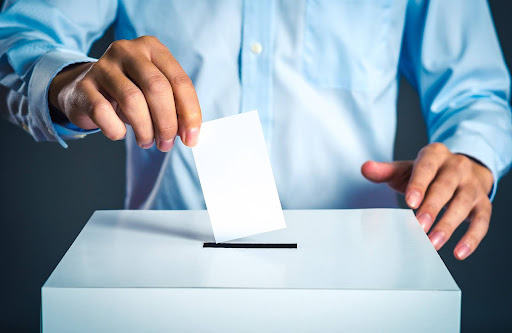HOA voting rules are vital to every election. Without them, the community’s elections may be unfair and neglect due process. What HOA voting procedures should your community adopt? Let’s find out.
Common HOA Voting Rules
Every election must adopt a set of HOA board member voting rules. Some states even require associations to adopt proper voting rules before holding elections.
What rules should your neighborhood have on HOA voting? Here are the most common and effective HOA voting rules to consider.
1. Nomination Procedure Rules
Every homeowners association has to have rules regarding nominations. Can homeowners nominate themselves, or can they nominate only their neighbors? Moreover, should nominations be done during a meeting or through submissions? Here are some of the most common procedures you can adopt:
- Floor Nominations. This type of nomination takes place at a meeting with a quorum. Members in good standing may nominate their neighbors.
- Self-Nominations. This type of nomination allows qualified members to nominate themselves.
- Write-In Candidates. This type of nomination allows members to write in candidates during elections even if they were not previously nominated.
Remember, the nomination process should be consistent with the community’s governing documents. They must also be reasonable. Generally, homeowners associations cannot disallow members from nominating themselves during an election.
In addition, remember to consider state law when drafting nomination rules. The state of Texas requires certain HOAs to solicit candidates before disseminating election ballots. There are also rules regarding notice and what it should contain.
2. Candidate Qualifications
Homeowners associations must provide a set of qualifications for board and officer candidates. The qualifications must be consistent with state law and the governing documents. Be precise in your wording and make sure nothing can be misinterpreted.
Some of the most common qualifications include those involving HOA delinquencies. For instance, many HOAs disqualify candidates who must be on time to pay their HOA fees. They may also disqualify candidates with certain histories, such as criminal records. Other qualifications may include:
- No present violations of the community’s rules
- No involvement with HOA legal issues
- No relation to any current board member
3. Campaigning Rules and Access

How can candidates campaign during election season? Can they access the association’s resources and media? For example, can they publish campaigns through the community website, HOA newsletter, or social media platforms? Remember to identify whether candidates can or cannot use these methods to campaign.
In addition, the candidates should have equal access to these platforms during election season. The board cannot bar candidates from publishing certain campaigns just because the board disagrees with that point of view.
Furthermore, the HOA should specify whether candidates can use the common areas to campaign. Likewise, the candidates must have equal access to these spaces to maintain fairness. HOAs should also avoid charging the candidates for the use of these areas.
4. Ballot Procedures
How can homeowners use their ballots? Is there a specific way they should encase and send their ballots? Are secret ballots allowed? HOAs must outline these rules clearly. Moreover, the association should never deny a member of a ballot.
Apart from this, HOAs should ensure that the election inspector delivers the ballots and a copy of the HOA voting rules to the members. State law and the governing documents also require ample notice time, so review these before beginning elections.
5. Voting Power and Qualifications
Depending on state law and the governing documents, voting power may vary between homeowners. In some cases, HOAs allow one vote per unit. Meanwhile, other associations allow several homeowners to vote even if they live in the same separate interest.
6. Rules on Proxies
Does your community allow proxies? If so, how can they cast their votes during an election? Are proxies still valid during revotes or other elections? Make sure to outline these rules in the community’s HOA voting rules.
7. Voting Period
HOAs should specify when the polls will open and close. Ensure they have enough time to cast their votes, especially if the homeowners must send their ballots by mail.
8. Election Inspectors
Homeowners associations may need election inspectors to ensure fair and valid elections. Some states may even require election inspectors to assist HOAs. Regardless, the rules must define how to choose inspectors, who can serve as inspectors, and what they must do.
Some communities allow board members and community residents to be inspectors. Meanwhile, other HOAs require third-party inspectors so they can appoint additional people to authenticate signatures and count votes.
9. Voter and Candidate List

Homeowners associations must retain a voter and candidate registration list. This allows members to check their information and verify accuracy before ballot distribution, preventing discrepancies and mishaps during election season.
Generally, each voting list must include the member’s name, voting power, physical address of their separate interest, parcel number, and ballot mailing address. The HOA can use this information to disseminate ballots and authenticate them.
Frequently Asked Questions
Can HOAs Endorse a Candidate?
Homeowners associations should never endorse a candidate for the board. Otherwise, the election may be unfair, and its results may be skewed in favor of one candidate. Even if the person is qualified, the board must refrain from intervening. Moreover, they cannot speak ill of a different candidate to maintain neutrality.
What Is a Quorum?
HOA election meetings usually need a quorum to be legitimate. A quorum is the minimum number of attendees the HOA needs at a meeting for it to be able to conduct business. The quorum varies per association based on the governing documents. Meetings without a quorum — including the actions taken during the meeting — may be invalid.
Do Proxies Count Toward the Quorum?
It depends on the governing documents. Typically, proxies count towards the quorum. Moreover, they do not always have to attend the meeting to be part of the quorum.
Can Renters Vote?
Most HOAs do not allow renters to vote. However, some homeowners may end their tenant as their proxy to vote on their behalf.
Keeping Elections Fair
HOA voting rules are essential for keeping elections fair. With proper rules, the community can rest assured that the board has not manipulated the election results. They can vote for the people they want and create the community they deserve.
Are you having trouble with HOA elections? Landmark Community Management can help. We provide industry-leading management services to communities around Texas. Call us now at 512-569-5527 or reach out to us online to learn more!
RELATED ARTICLES:


